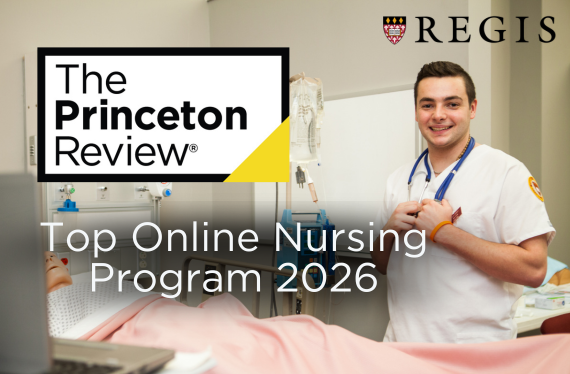Regis, a leading Catholic coed university in Greater Boston, convened a panel of leading experts to discuss brain, breast and lung cancer treatments including western medicine and complementary therapies.
The forum, moderated by Regis medical imaging bachelor-completion program director Erin Beloin, drew in a crowd of nearly 200 people that included nurses, social workers, students and interested citizens.
E. Antonio Chiocca, MD, chairman of neurosurgery at Brigham and Women’s Hospital and Harvey W. Cushing professor of neurosurgery at Harvard Medical School, discussed brain cancer and ongoing immunotherapy strategies including gene- vs. viral oncolytic-based therapy. He reviewed current clinical trials for newly diagnosed and recurrent glioblastoma treatments.
Anne Kelly, MS, RN, AOCNP, nurse practitioner at Dana Farber Cancer Institute’s Women’s Cancer Program, explained risk factors, diagnosis and treatment of breast cancer, a cancer for which survival rates continue to increase. Death rates have been declining since 1987 and more than 2.8 million breast cancer survivors today. Early detection is key with a 96-100% five-year survival rate among women with Stage I breast cancer. Stage IV breast cancer, however, is incurable. In addition to surgery, radiation, chemotherapy, immunotherapy, and hormonal/endocrine therapy, genetic testing and targeted therapies hold significant promise.
Jacob Sands, MD, physician and researcher at Dana Farber Cancer Institute, Boston, gave an update on advances in lung cancer treatment. According to Sands, “while there are many advances in targeted and immunotherapies for lung cancer, lung screening for those at risk is one of the biggest advances on the horizon.” Sands provided evidence of the impact screening has on survival rates as well as evidence mitigating concerns over costs, “false positives,” and increased radiation exposure.
Amy Rothenberg, ND, DHANP, doctor of naturopathy at Naturopathic Health Care in Enfield, Conn., and Huffington Post blogger, described integrative medicine as a combination of traditional medicine with complementary approaches for managing symptoms, increasing wellness, and improving treatment efficacy. Cancer patients may seek integrative care to address the side effects of treatment, manage psychological and stress related aspects of care, or help in preventing recurrence. Her advice to patients and providers using integrative medicine is to “use expert and trained professionals for guidance, focus on foundations of good health, keep the plan simple during active therapies, don’t underestimate the benefits of exercise and essential role of rest and sleep, and finally be flexible and forgiving.”
The Regis President’s Lecture Series on Health, which offers free contact hours for nurses and social workers, was established in 2007 and is hosted in partnership with Harvard Pilgrim Health Care. The series invites members of the public and the university community to participate in an exciting dialogue with health care leaders from government and the health professions. The series is one of the many ways the university fulfills its mission to boldly empower the next generation of leaders to change lives and be a force for good in the world. Next up is “Schizophrenia/Bi-Polar Disorders/New Treatment Modalities” on November 15. To register, visit regiscollege.edu/disorders.


